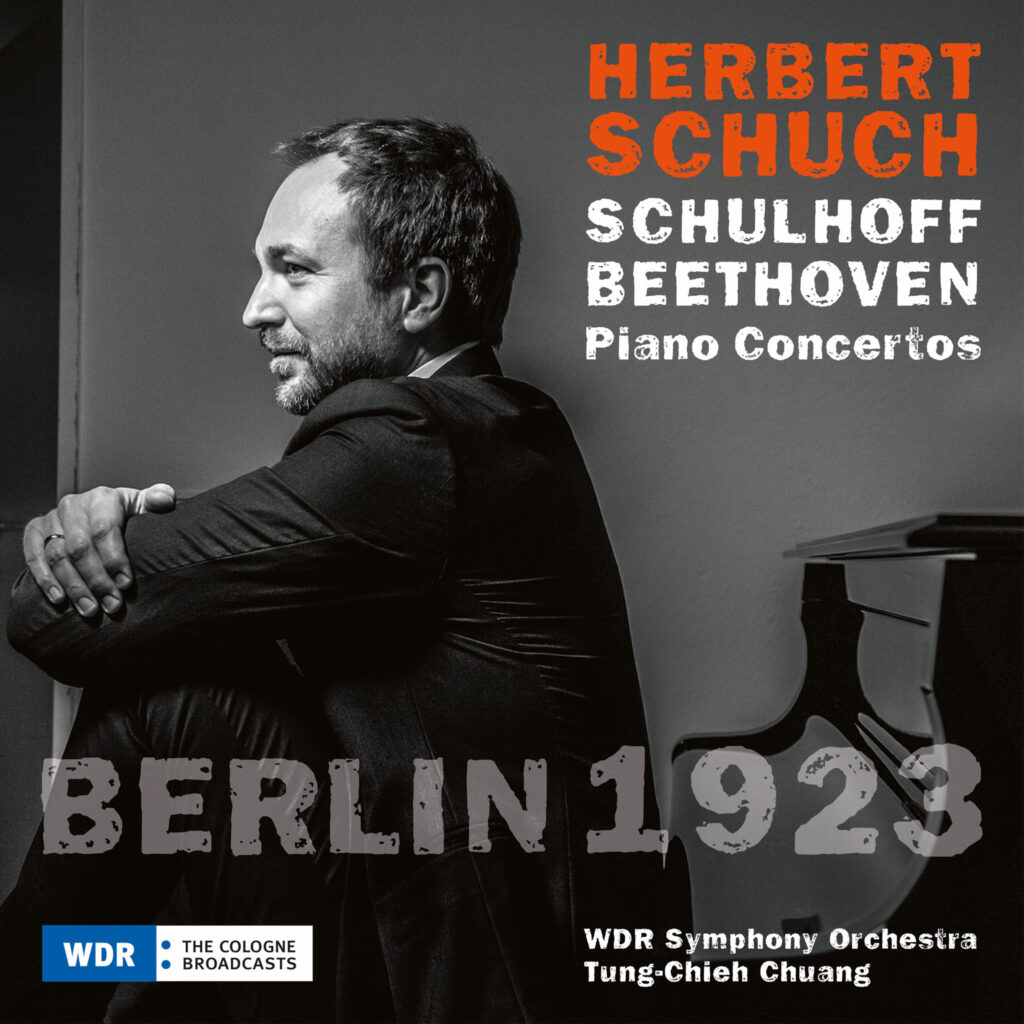BERLIN 1923
Beethoven & Schulhoff: Piano Concertos
Barbara Clark, June 2024
Herbert Schuch’s latest release, “BERLIN 1923,” revisits Beethoven’s Third Piano Concerto, coupled with Erwin Schulhoff’s 1923 Piano Concerto, presenting a compelling blend of classical mastery and historical significance. A decade after his previous recording of Beethoven’s Third Piano Concerto, Schuch returns with a fresh perspective and a captivating performance.
In his earlier recording, Schuch faced criticism for lacking warmth and missing an opportunity to showcase Viktor Ullmann’s cadenza for Beethoven’s concerto. However, this time around, Schuch not only addresses this concern by including Schulhoff’s cadenza for the Beethoven concerto but also delivers a delightful and nuanced interpretation of the entire work.
Schuch’s Beethoven is a revelation, demonstrating a sparkling narrative flair akin to a seasoned storyteller. His phrasing is vibrant and engaging, from the crystalline articulation of florid passages to the sculpting of melodies that captivate the listener. The slow movement is a highlight, with Schuch’s editorial choice to create a slow diminuendo in the ascending trill adding a ravishing touch. In the finale, moments like the stentorian bass line followed by sweetly confidential lyricism showcase Schuch’s interpretative depth.
Conductor Tung-Chieh Chuang proves to be an excellent Beethovenian, leading the WDR Symphony Orchestra with characterful and highly sensitive playing. The first movement’s dramatic shift from G major to E flat is masterfully executed, highlighting Chuang’s skill in navigating Beethoven’s complex compositions.
Erwin Schulhoff’s 1923 Piano Concerto, a composition by a fellow pianist and composer killed by the Nazis, is brilliantly interpreted by Schuch. Balancing Impressionist and Expressionist elements, Schuch captures the essence of Schulhoff’s work, leaning towards Scriabin-like ecstasy in certain passages. The Allegro alla jazz movement, with its lively percussion, is particularly noteworthy for Schuch’s buoyant and frothy playing, conveying the humor in the music without overemphasis.
While other recordings may offer more vibrant colors or stunning clarity of detail, Schuch and Chuang’s poetically intelligent interpretation of Schulhoff’s concerto is equally endearing. “BERLIN 1923” stands as a testament to Schuch’s growth as an artist and his commitment to exploring the historical and artistic dimensions of these piano concertos.

